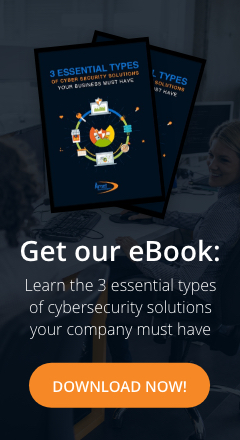Accounting is the systematic and comprehensive recording of financial transactions pertaining to an enterprise or business. It is the collection and reporting of sensitive financial data for the sake of transparency, accountability, and compliance with regulations.
Given the sensitive nature of the data involved in accounting, protocols for its collection, storage, and presentation tend to be stringent and standardized. As companies shift to digital, these protocols require updates and software integrations that ensure compliance standards are still met, even while additional layers of security are being implemented.
The accounting industry pulls no punches with how it protects privileged information such as company financial records. Your business should also take the appropriate measures, so as to ensure the integrity and quality of your service. Here are some steps you can take to ensure that your clients’ data is protected.
Automate your updates
Not all businesses have the ability to monitor each update as they come. That’s why update automation is a gift from the developer gods. With automated updates, you get them the moment they are made “live” by your software provider. Use them. They will save you time and effort, and they will also drastically shrink your system’s vulnerability window.
Develop strong IT policies
Strong IT policies encompass several components: strong password policies, automatic screen locks, equipment trackers, proper data and equipment disposal, strict rules for BYOD (bring your own device) and mobile devices, and a dynamic security strategy.
A good data protection policy anticipates and prepares for things to go wrong, regardless of whether they’re likely to happen or not. Encryption is the best friend of accounting firms, or any business that deals with sensitive information, for that matter. And it should be applied in a liberal yet judicious manner. This, plus all the components mentioned in the previous paragraph, make for a secure IT environment that ensures all data are given several layers of protection.
Use Multifactor Authentication
More and more businesses around the world are using Multifactor Authentication (MFA) and Two-Factor Authentication (2FA). They augment the traditional username-password pairing with a second (and sometimes an optional third) layer of authentication. With MFA and 2FA, you log in by typing your username and password, and provide extra authentication using a vetted mobile device.
They developed these protocols knowing that passwords can be stolen and that smartphone owners are often more careful with their mobile device than they are with passwords. Having MFA or 2FA greatly reduces the chances of an account being compromised, as a stolen password alone will no longer be enough to provide access to sensitive data.
Consider managed services
A reputable managed services provider (MSP) can assist you greatly in taking each of the steps mentioned in this article. This is especially true for small- to medium-sized businesses that do not have the resources for a full-sized IT department.
Managed IT can provide the skills and the monitoring of a full-sized IT without businesses having to spend on more employees, more hardware, and more facilities. Our experts at Arnet Technologies can even provide IT services specific to the needs of accounting firms, whether it’s compliance, 24/7 support, cybersecurity, disaster recovery, and more for a flat, subscription-based monthly fee.
Let Arnet Technologies’ EasyNET Virtual Office and cybersecurity services take the IT load off your shoulders, so you can focus on the rigors of accounting. Get in touch with us today so we can turn your technology into an asset!

